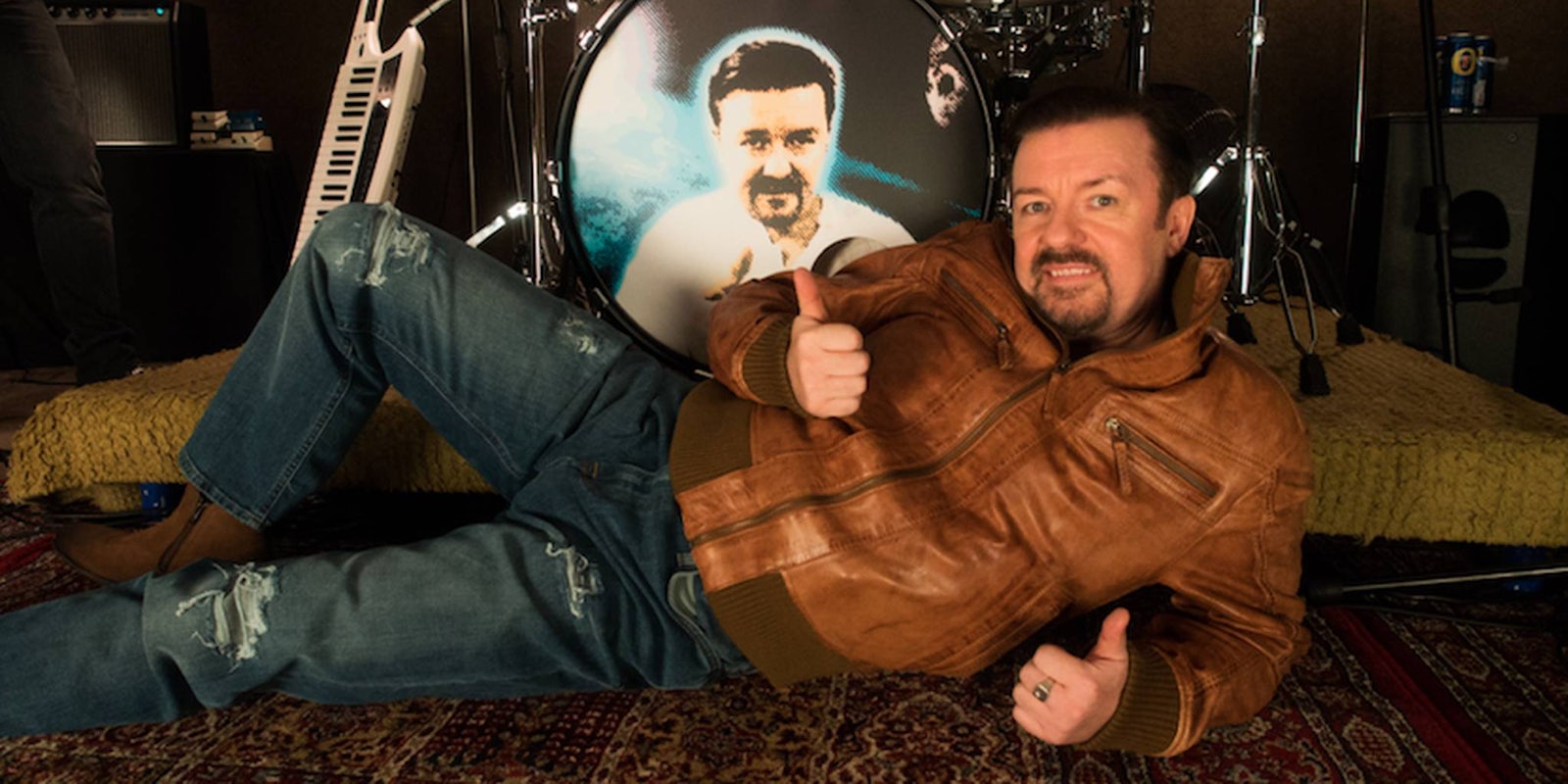It’s been nearly 15 years since U.K. series The Office went off the air, and left us with an honest summation of boss David Brent (Ricky Gervais) in the final episode: He’s chasing fame and not having a very good time. He’s lost without an audience. And he’s reminded that sometimes dropping his mask can yield the most genuine moments.
The Office was resurrected in 2005, with Steve Carell stepping in as boss Michael Scott and embodying a much more cringeworthy—and ultimately more likable—version of Brent. Its popularity eclipsed the original and ushered in the fourth-wall-breaking mock-com format on NBC. So the return of Brent now is a bit curious.
In David Brent: Life on the Road, Netflix takes another gamble on Gervais, following up 2016 original film Special Correspondents and series Derek. Life on the Road, directed and written by Gervais, catches up with Brent at a new sales job where he’s not the boss, so of course his neediness is full blast. Devoid of the supporting characters that made the original Office so great, we’re left with two-dimensional surrogates who do little to create a complex sketch of life in a cubicle.
Life on the Road takes an Office subplot and makes it the story: Brent has reformed old band Foregone Conclusion, sans original members, so he has to deal with a younger generation of musicians who openly dislike him, because David Brent is still David Brent. Anyone hoping for character growth will be disappointed; Brent’s need for attention and lack of filter are even worse 15 years later. He makes sexual comments in front of two female employees (one of whom really likes him, for some reason), pouts when his band members don’t want to hang out, jokes about rape, and writes songs rife with racial stereotypes, as the group’s reluctant emcee, Dom (Ben Bailey Smith) looks on uncomfortably.
The scenes with Dom are the highlight: He has the talent and youth Brent doesn’t, and inserts some timeliness and humor into the story. But we still have to endure a long setup for Brent’s joke about a man in a wheelchair, and a scene where he drunkenly calls Dom “my n****r” more than once.
Gervais enjoys playing fame-chasing characters (and did it better on Extras), but in 2017, when tone-deaf, attention-seeking narcissists have so much air time, does the bit still read? The U.K. Office ended on such a perfect note that this film seems superfluous. You want Brent to have some sort of revelation, but the genuine moments here are fleeting.


